
Gjakova: The Heartbeat of Kosovo’s Cultural Heritage
Gjakova, a charming city in the western part of Kosovo, offers a unique blend of history, culture, and natural beauty. Steeped in tradition, Gjakova is one of the oldest settlements in Kosovo, with a vibrant past that dates back to the Ottoman era. Its rich historical tapestry is evident in its well-preserved architecture, bustling bazaars, and centuries-old mosques. The Grand Bazaar, known as Çarshia e Madhe, is the heart of the city, where you can experience the local way of life, sample traditional foods, and shop for handmade crafts. Another highlight is the Hadum Mosque, an exquisite example of Ottoman architecture, which stands as a testament to the city’s historical and cultural significance. The mosque, surrounded by beautiful gardens, offers a peaceful retreat and a glimpse into the spiritual life of the locals. For those interested in history, the Ethnographic Museum is a must-visit. Housed in a traditional Ottoman building, the museum showcases artifacts and exhibits that tell the story of Gjakova’s past. Nature lovers will find plenty to explore in the surrounding areas. The Rugova Canyon, just a short drive away, offers breathtaking views and numerous hiking trails. The nearby Lake Radoniq is perfect for a relaxing day out, with opportunities for boating and picnicking. In the evenings, the city comes alive with local cafes and restaurants serving delicious Kosovar cuisine. Whether you’re a history buff, a nature enthusiast, or simply looking for a place to unwind, Gjakova has something to offer every traveler.
Local tips in Gjakova
- Visit the Grand Bazaar early in the morning to avoid crowds and get the best selection of goods.
- Wear comfortable shoes, as many of the city’s attractions are best explored on foot.
- Try traditional foods such as flija and pite at local restaurants for an authentic taste of Kosovar cuisine.
- Carry some cash, as not all places accept credit cards.
- Hire a local guide to get deeper insights into the city’s history and culture.
Gjakova: The Heartbeat of Kosovo’s Cultural Heritage
Gjakova, a charming city in the western part of Kosovo, offers a unique blend of history, culture, and natural beauty. Steeped in tradition, Gjakova is one of the oldest settlements in Kosovo, with a vibrant past that dates back to the Ottoman era. Its rich historical tapestry is evident in its well-preserved architecture, bustling bazaars, and centuries-old mosques. The Grand Bazaar, known as Çarshia e Madhe, is the heart of the city, where you can experience the local way of life, sample traditional foods, and shop for handmade crafts. Another highlight is the Hadum Mosque, an exquisite example of Ottoman architecture, which stands as a testament to the city’s historical and cultural significance. The mosque, surrounded by beautiful gardens, offers a peaceful retreat and a glimpse into the spiritual life of the locals. For those interested in history, the Ethnographic Museum is a must-visit. Housed in a traditional Ottoman building, the museum showcases artifacts and exhibits that tell the story of Gjakova’s past. Nature lovers will find plenty to explore in the surrounding areas. The Rugova Canyon, just a short drive away, offers breathtaking views and numerous hiking trails. The nearby Lake Radoniq is perfect for a relaxing day out, with opportunities for boating and picnicking. In the evenings, the city comes alive with local cafes and restaurants serving delicious Kosovar cuisine. Whether you’re a history buff, a nature enthusiast, or simply looking for a place to unwind, Gjakova has something to offer every traveler.
When is the best time to go to Gjakova?
Iconic landmarks you can’t miss
Prizren Fortress
Discover the historic Prizren Fortress, a captivating landmark offering stunning views and a glimpse into Kosovo's rich cultural heritage.
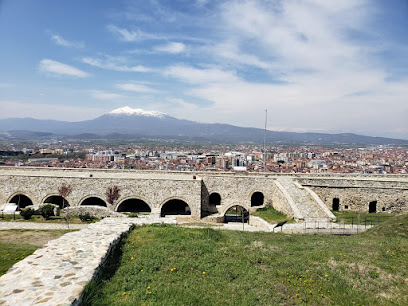
Patriakana e Pejës
Explore the serene beauty and spiritual heritage of the Patriarchate of Peć, a UNESCO World Heritage site in Kosovo's picturesque landscape.
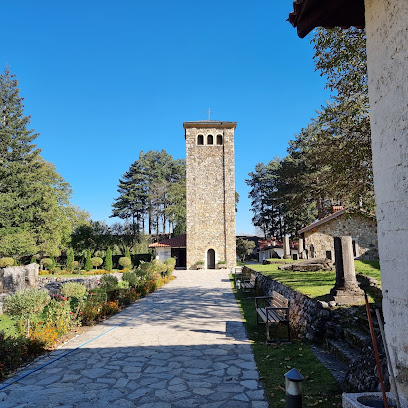
Memorial Complex Adem Jashari
Explore the Memorial Complex Adem Jashari, a historical site that honors the Albanian struggle for independence and pays tribute to national heroes.
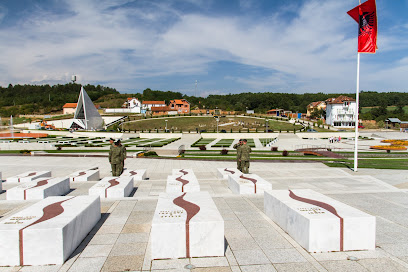
Kosovo Museum
Explore the rich cultural heritage of Kosovo at the Kosovo Museum, featuring diverse exhibits that illuminate the region's history and artistry.
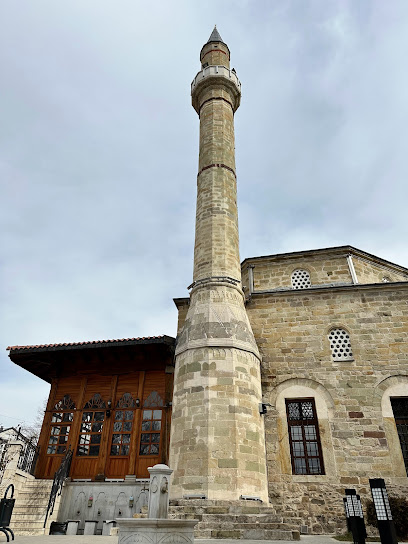
Gazimestan Monument
Explore the Gazimestan Monument in Pristina, a historical landmark that embodies the spirit of resilience and commemorates the legendary Battle of Kosovo.
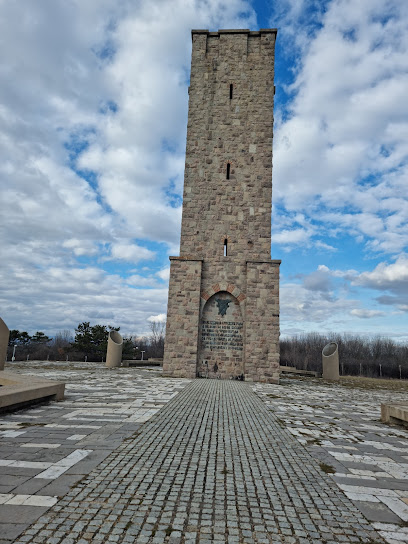
Hotel Çarshia e Jupave
Experience the charm of Gjakova at Hotel Çarshia e Jupave, where comfort meets local culture in a cozy hotel setting.
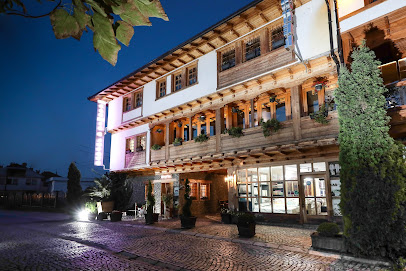
Serbian Cathedral Mother of God of Ljeviš
Discover the breathtaking Serbian Cathedral Mother of God of Ljeviš, a UNESCO World Heritage site in Prizren, rich in history, art, and spirituality.
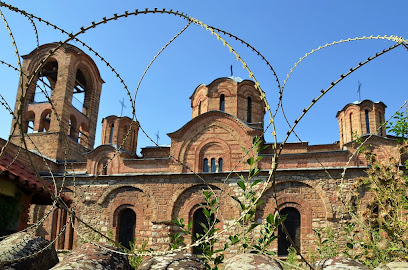
Stone bridge
Discover the stunning Stone Bridge in Prizren, a historical landmark that offers breathtaking views and rich cultural experiences in the heart of Kosovo.
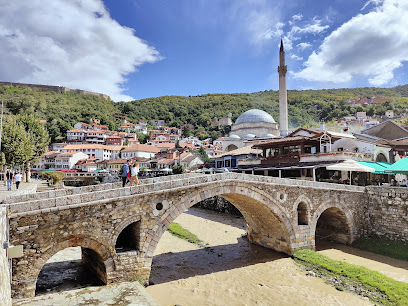
Ethnographic Museum - Muzeu Etnologjik
Explore the vibrant history and diverse cultures of Kosovo at the Ethnographic Museum - a captivating journey through time in Pristina.
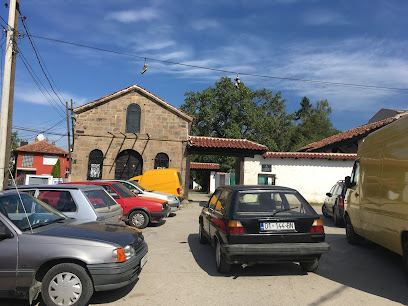
Zvechan Fortress
Uncover the rich history and captivating views at Zvechan Fortress, a must-visit historical landmark in the Balkans.
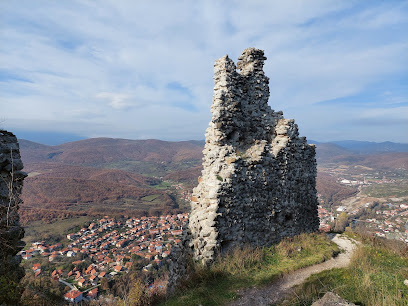
Hadum Mosque
Explore Hadum Mosque, a stunning historical landmark in Gjakova, where culture and tranquility blend seamlessly for an unforgettable visit.
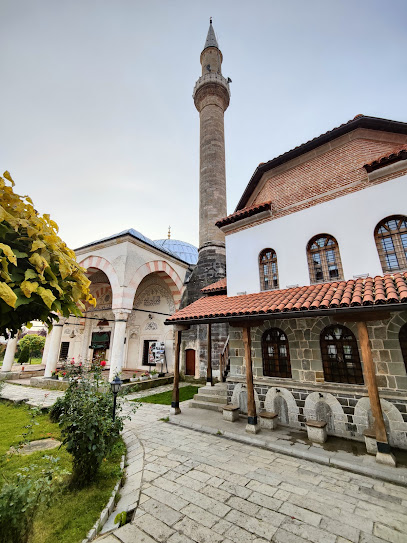
Gjakova e Vjeter
Discover the authentic taste of Balkan cuisine at Gjakova e Vjeter, where delicious kebabs and warm hospitality await in Bardh i Madh.
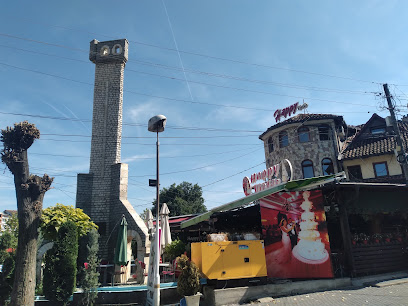
Rugova Canyon viewpoint
Discover the stunning Rugova Canyon viewpoint in Peja, Kosovo, where breathtaking landscapes and serene nature await every traveler.
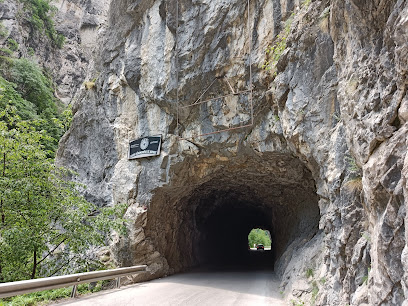
Gjakovë City
Discover the beauty and tranquility of Gjakovë City Park, a serene escape filled with nature, culture, and local charm.
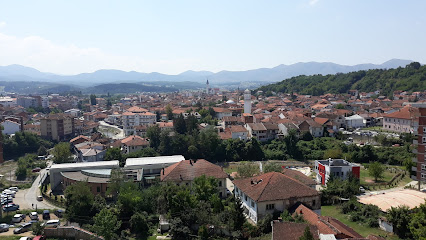
Hani i Haraçisë
Experience the authentic flavors of Kosovo at Hani i Haraçisës in Gjakova, where tradition meets culinary excellence.
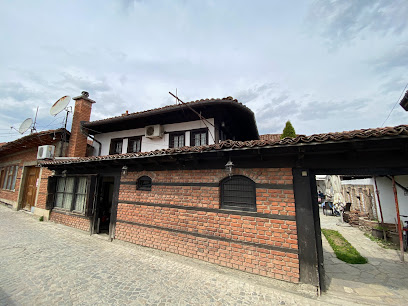
Unmissable attractions to see
Prizren Fortress
Explore the ancient Prizren Fortress, where history and breathtaking views of Prizren come together in a perfect blend of culture and natural beauty.
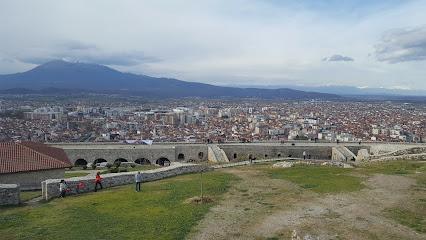
Sinan Pasha Mosque
Discover the Sinan Pasha Mosque in Prizren, a breathtaking example of Ottoman architecture and a tranquil place for reflection amidst Kosovo's rich history.
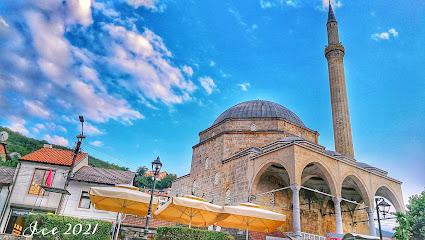
Monastery Visoki Decani
Experience the breathtaking beauty and rich history of Monastery Visoki Decani, a UNESCO World Heritage Site in the heart of Kosovo.
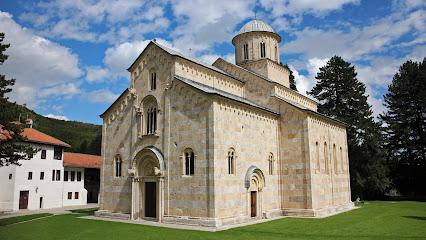
White Drin Waterfall
Discover the breathtaking beauty of White Drin Waterfall, a serene nature preserve and top tourist attraction in Kosovo, perfect for nature lovers and photographers.
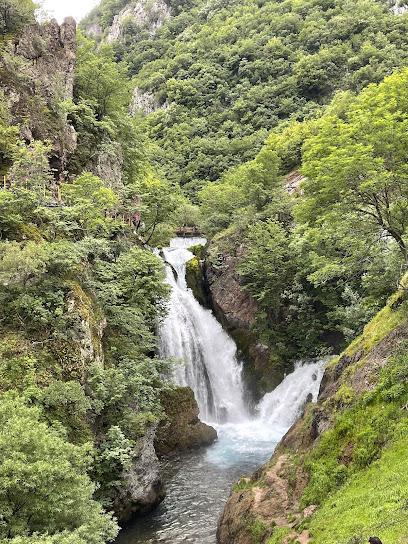
Pećka Patrijaršija
Explore the serene beauty and rich history of Pećka Patrijaršija, a UNESCO World Heritage site and a gem of Orthodox spirituality in Kosovo.
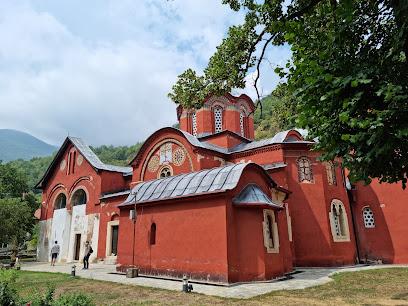
Mirusha Waterfalls
Experience the natural beauty of Mirusha Waterfalls in Klina, a stunning cascade surrounded by lush greenery and tranquil landscapes.
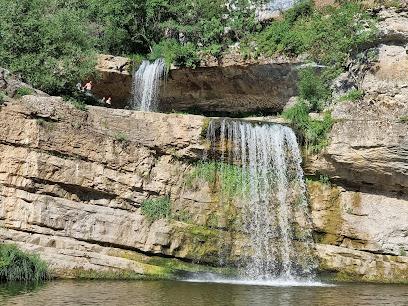
Serbian Cathedral Mother of God of Ljeviš
Explore the architectural splendor and serene ambiance of the Serbian Cathedral Mother of God of Ljeviš in Prizren, a UNESCO World Heritage site.
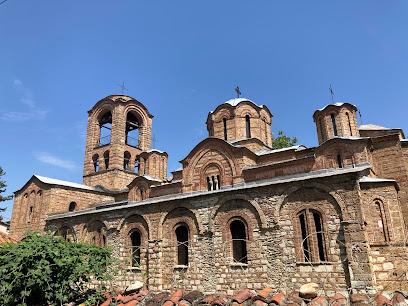
Albanian League of Prizren
Explore the Albanian League of Prizren, where history and culture collide in a captivating museum dedicated to Albania's fight for independence.
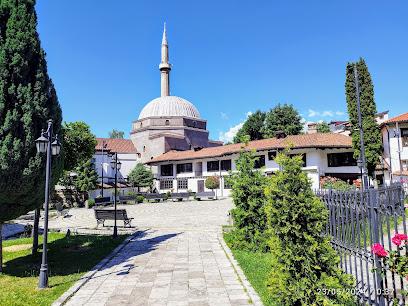
Turkish Bath
Discover the Traditional Turkish Bath in Prizren, a historic gem that offers a unique blend of cultural heritage and relaxation amidst stunning Ottoman architecture.
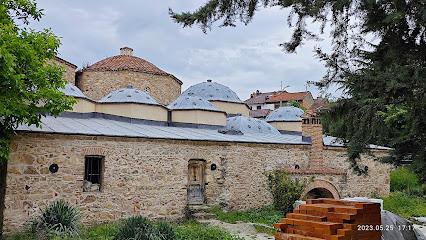
Rugova Canyon viewpoint
Discover the breathtaking views at Rugova Canyon viewpoint in Peja, Kosovo—where nature's beauty meets adventure and tranquility.
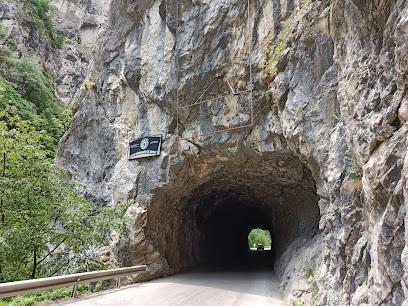
Valbona valley
Explore the breathtaking landscapes and rich cultural heritage of Valbona Valley, a hidden gem in the Albanian Alps.
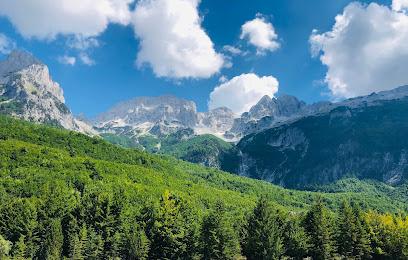
Catholic Cathedral of Our Lady of Perpetual Succour
Discover the architectural beauty and spiritual ambiance of the Catholic Cathedral of Our Lady of Perpetual Succour in the historic city of Prizren, Kosovo.
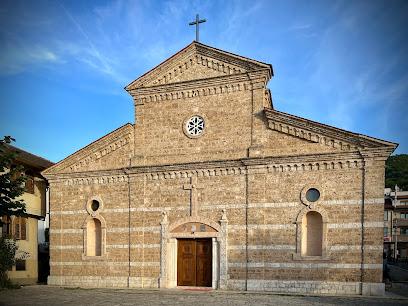
Mirusha Waterfalls & Canyons
Explore the breathtaking Mirusha Waterfalls & Canyons, a national park in Kosovo, known for its stunning waterfalls, lush greenery, and outdoor adventure opportunities.
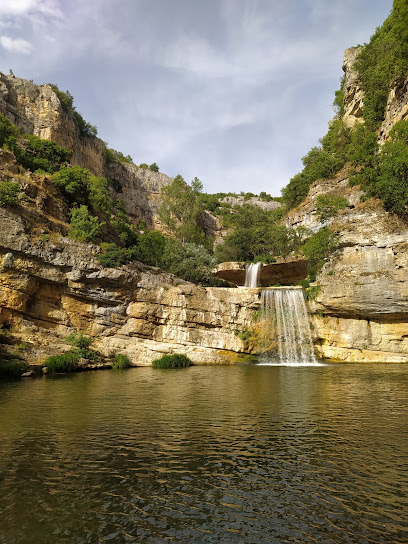
Teqja e Saraçhanës
Discover the serene beauty and rich heritage of Teqeja e Saraçhanës in Prizren, a must-visit cultural and religious landmark.
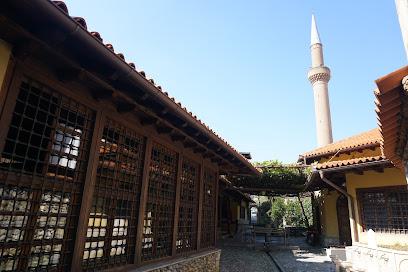
Orthodox Church Sveti Spas
Explore the rich history and serene beauty of the Orthodox Church Sveti Spas in Prizren, a cultural gem in Kosovo's picturesque landscape.
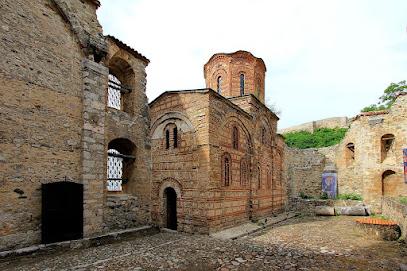
Essential places to dine
Hotel Çarshia e Jupave
Discover exquisite Albanian cuisine at Hotel Çarshia e Jupave in Gjakova – where tradition meets modern dining in an inviting atmosphere.
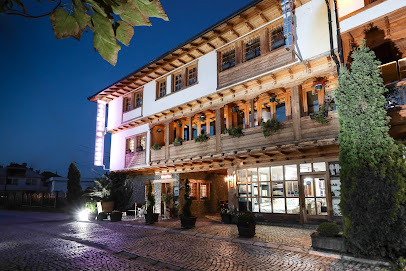
Restaurant Xeni Imperial
Experience authentic Balkan flavors blended with international cuisine at Restaurant Xeni Imperial in Gjakove.
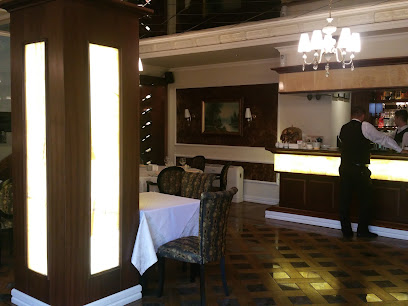
KFC Gjakova
Discover comfort food at KFC Gjakova - where global flavors meet local hospitality in the heart of Kosovo.
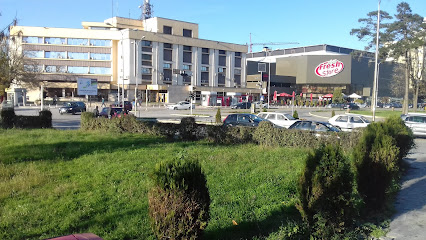
Shkugez
Experience the best of Gjakova's local cuisine at Shkugez—where tradition meets taste in a serene park setting.
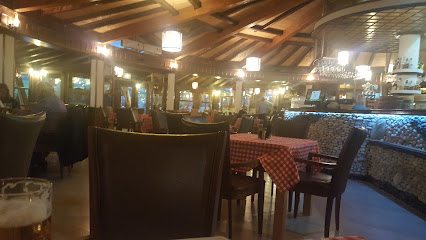
GRILL HOUSE Gjakovë
Experience the best of traditional grilling at GRILL HOUSE Gjakovë - where every bite is bursting with flavor.
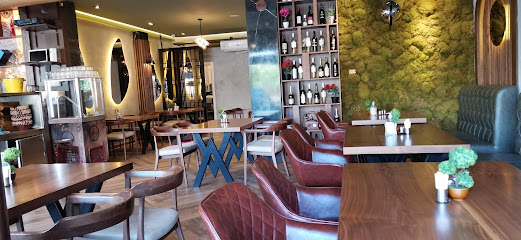
Restaurant Villa Italia Morinë
Discover the essence of Italy at Restaurant Villa Italia Morinë in Gjakova – where authentic flavors meet warm hospitality.
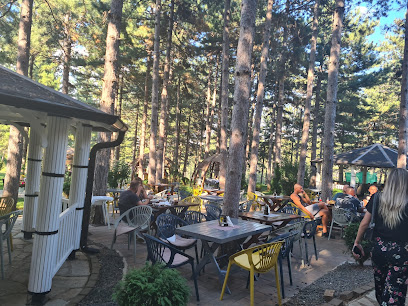
Pishat
Experience authentic Kosovar cuisine at Pishat - where tradition meets flavor in a cozy setting.
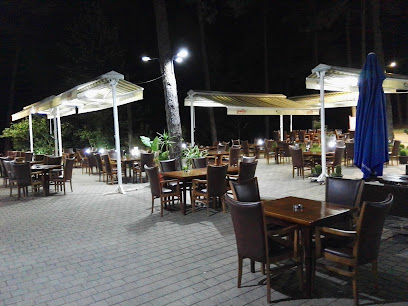
Jaki Grill
Experience authentic Kosovar cuisine at Jaki Grill in Gjakova – where every meal tells a story.
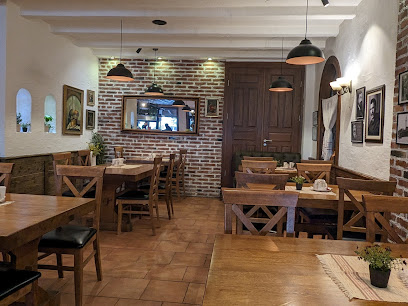
Restaurant Kompresori Gjakove
Experience authentic Kosovar cuisine at Restaurant Kompresori in Gjakova - where tradition meets flavor.
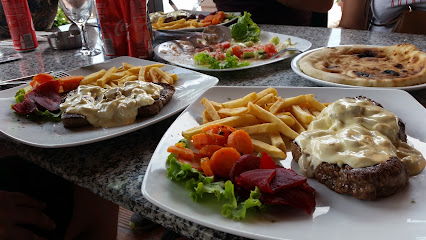
Restaurant Shkugeza Premium
Discover exquisite local cuisine in a serene park setting at Restaurant Shkugeza Premium in Gjakova.
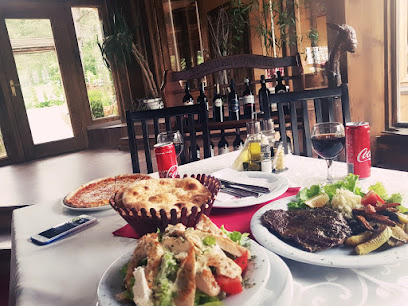
Restaurant President
Experience the rich flavors of Kosovo at Restaurant President in Gjakova - where tradition meets modern culinary excellence.
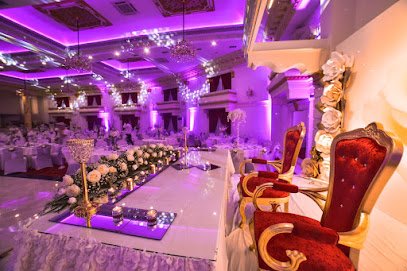
ARDIT DYLA HOTELS
Discover delightful flavors at Ardit Dyla Hotels in Gjakova – where local ingredients meet modern culinary artistry.

Hani i Haraçisë
Experience authentic Gjakova cuisine at Hani i Haraçisë—where tradition meets taste in every dish.
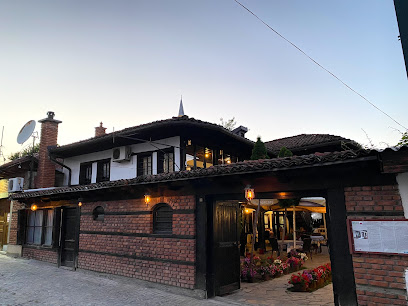
Restaurant Jeta
Discover authentic Kosovar cuisine at Restaurant Jeta in Fushë Kosovë - where flavor meets affordability.
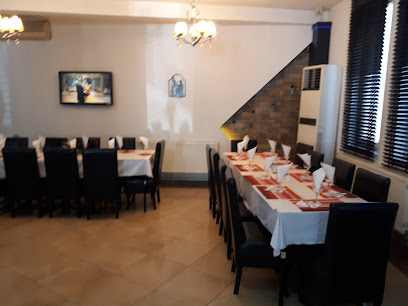
Frida Hotel & Restaurant
Experience authentic Kosovar cuisine at Frida Hotel & Restaurant in Gjakova - where tradition meets modern hospitality.
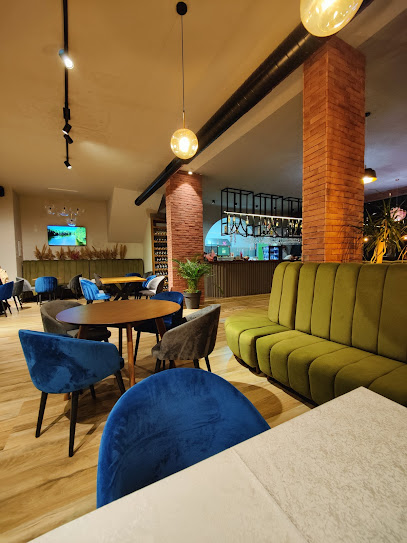
Markets, malls and hidden boutiques
Albina Dyla Gjakova
Discover the elegance of Albina Dyla Gjakova, where unique fashion meets traditional craftsmanship in a vibrant shopping experience.
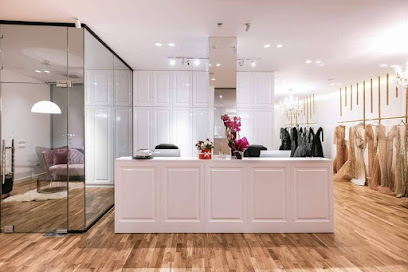
ETC - Elkos Trading Center, Gjakovë
Explore the bustling ETC - Elkos Trading Center in Gjakovë for a unique shopping experience with local flair and global brands.
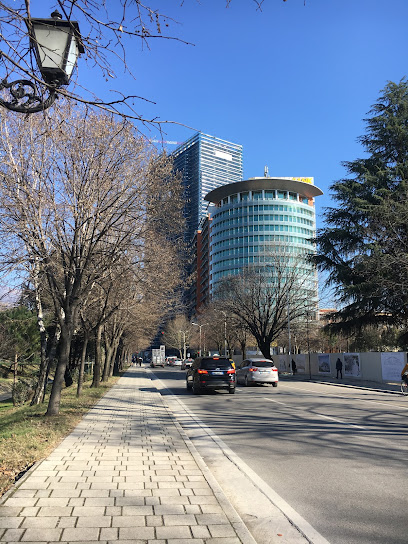
Center Mall
Discover the vibrant shopping scene at Center Mall in Gjakova, offering a mix of retail, dining, and entertainment experiences for every visitor.
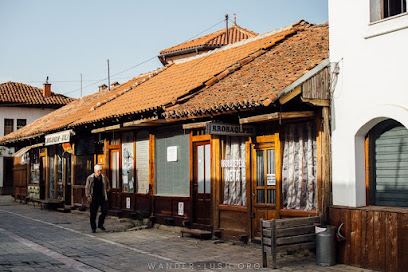
Mobilshop Ari Gjakovë
Explore cutting-edge technology at Mobilshop Ari Gjakovë, your go-to electronics store in the heart of Gjakova, Kosovo.
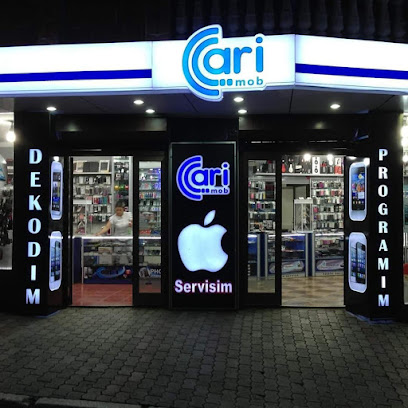
Top Shop
Discover unique local treasures at Top Shop in Gjakova – your go-to destination for authentic souvenirs and vibrant shopping.
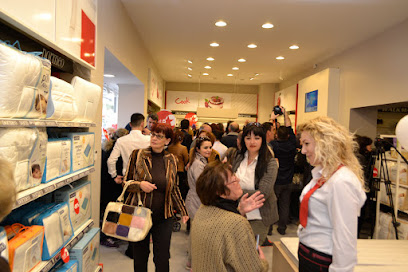
AM Fashion Design
Discover exquisite bridal gowns and personalized service at AM Fashion Design, Gjakova's premier wedding store for brides-to-be.
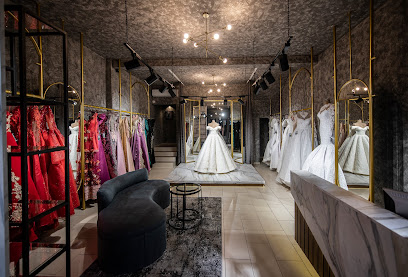
Pasticeria Edona
Discover the sweet taste of tradition and modernity at Pasticeria Edona, Gjakova's premier destination for pastries and pasta.
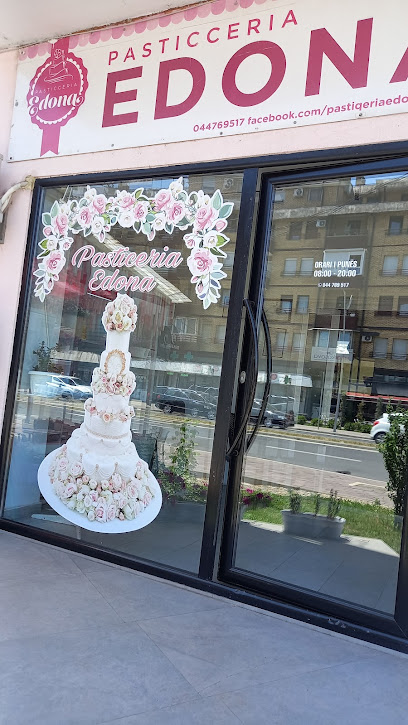
Happy Vjeter
Discover a world of sweetness at Happy Vjeter, Gjakova's charming candy store filled with delightful treats and local specialties.
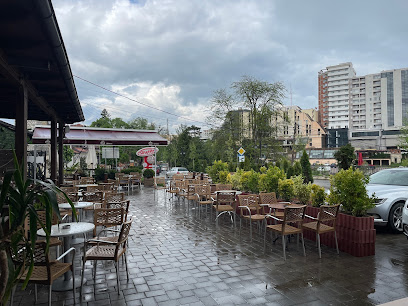
Freestyle
Discover the Freestyle Shopping Mall in Gjakova - your gateway to shopping, dining, and local culture in one vibrant destination.
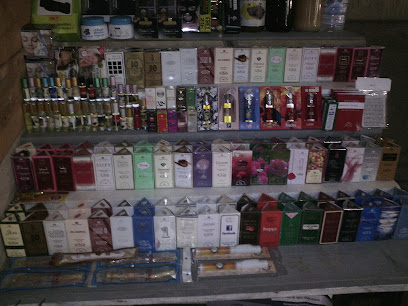
KORREKT-2 HEKURISHT
Explore KORREKT-2 HEKURISHT in Gjakova for a wide array of electronics, exceptional customer service, and the latest tech gadgets.
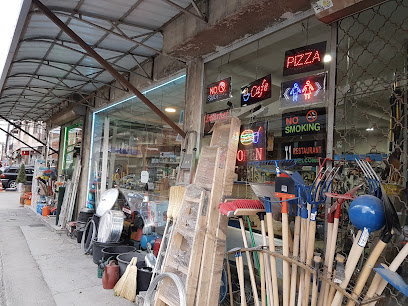
Genius Decor
Discover unique handmade gifts and beautiful floral arrangements at Genius Decor, Gjakovë's charming gift shop and event venue.
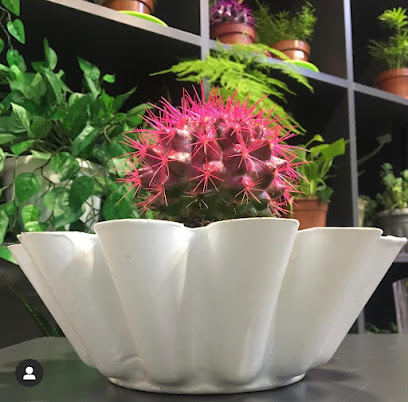
PurpleMuse
Discover the charm of PurpleMuse, a knit shop in Gjakova offering exquisite handmade knitwear and local artistry.

Matisse Gjakovë
Discover the sweet side of Gjakova at Matisse Gjakovë, where every pastry is a work of art and a taste of tradition.
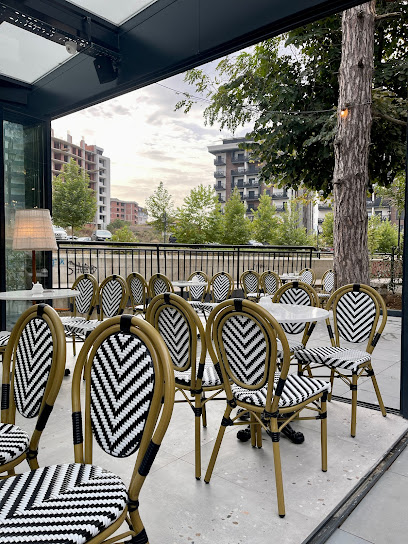
Inara dessert
Discover heavenly desserts at Inara Dessert Shop in Gjakova – a paradise for sweet lovers with stunning treats and a cozy atmosphere.
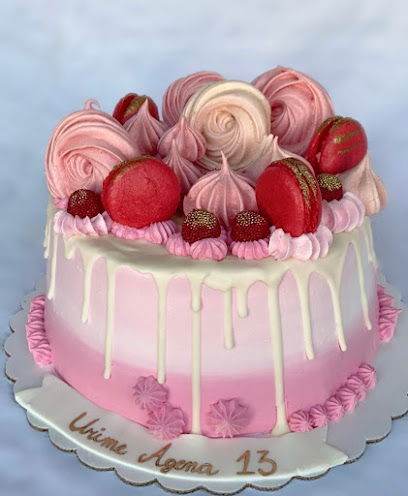
City Market
Discover authentic Kosovar flavors and immerse yourself in local culture at City Market in Gjakova.
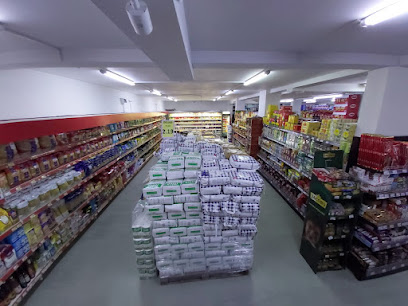
Essential bars & hidden hideouts
Drum Bar Gjakovë
Discover the vibrant nightlife at Drum Bar Gjakovë, a perfect blend of local culture, delicious drinks, and a welcoming atmosphere.
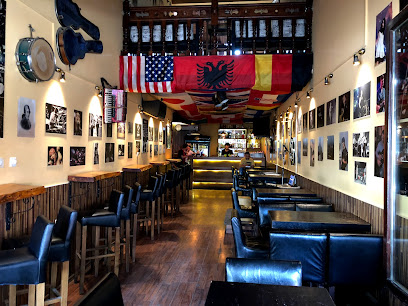
Ambient Bar Gjakovë
Discover Gjakovë's lively nightlife at Ambient Bar, where cocktails, craft beers, and cozy vibes await you!
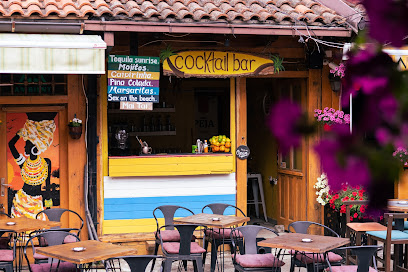
Lounge Bar Corbusier
Experience the vibrant nightlife and unique ambiance of Lounge Bar Corbusier in Gjakova, where tradition meets modernity.
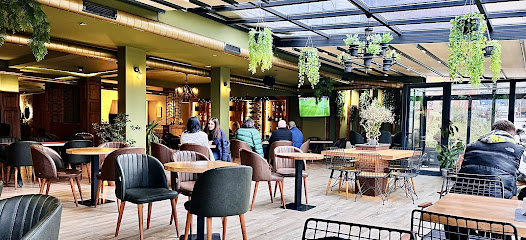
Blackmoon Prime
Discover Blackmoon Prime, Gjakovë's top hookah bar, blending traditional flavors with a modern vibe for an unforgettable night out.
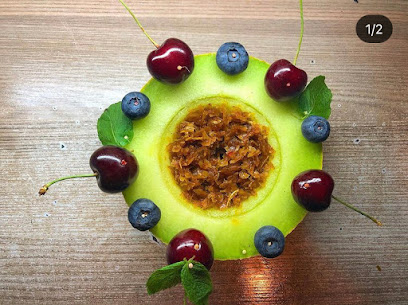
Amici Cocktails Bar
Discover the vibrant cocktail culture at Amici Cocktails Bar in Gjakova, where expertly crafted drinks and a cozy ambiance await you.
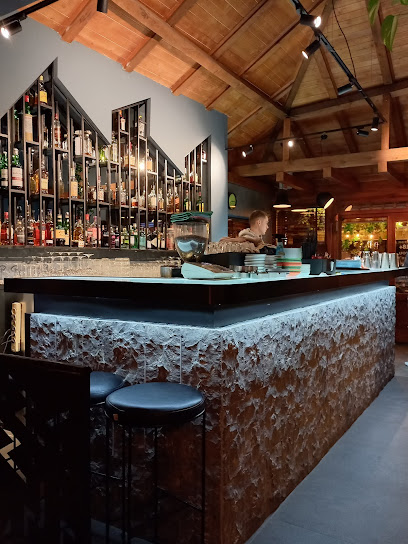
Veraria Kulti
Discover Gjakovë's premier wine bar, Veraria Kulti, offering a unique selection of local and international wines in a cozy setting.
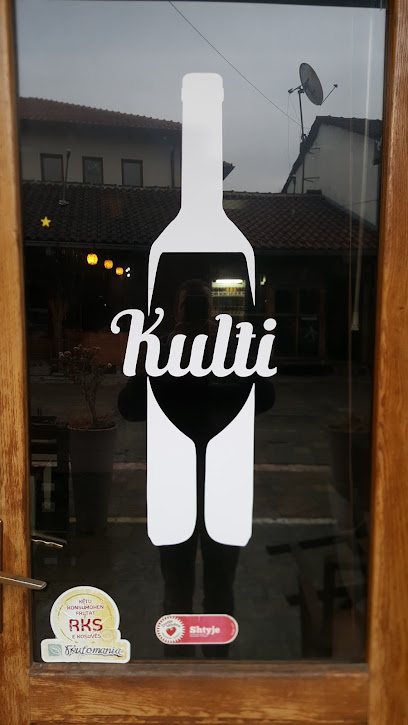
TheRetro Bar
Experience Gjakova's vibrant nightlife at TheRetro Bar, where vintage charm meets modern drinks in a welcoming atmosphere.
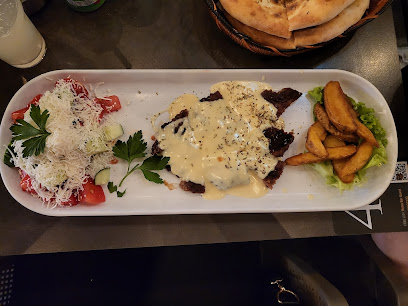
Friends&Corbusier
Experience the vibrant nightlife at Friends&Corbusier, Gjakova's premier bar for locals and tourists alike.

Don Chamila'
Discover the lively atmosphere of Don Chamila' in Gjakova, where refreshing drinks and local culture blend seamlessly for an unforgettable experience.
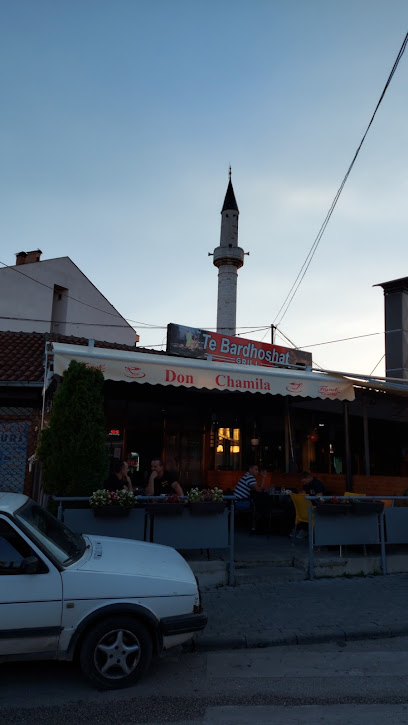
Bocca Grande
Discover Bocca Grande, a delightful bar in Gjakova offering refreshing drinks and a cozy atmosphere perfect for unwinding after your adventures.
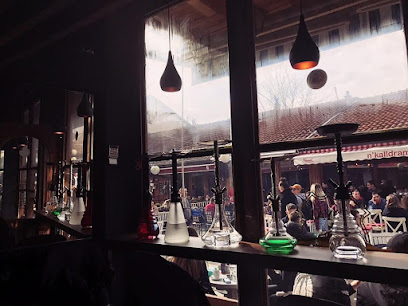
Zone Bar
Discover the heart of Gjakova at Zone Bar, where vibrant atmosphere and friendly service meet for an unforgettable experience.
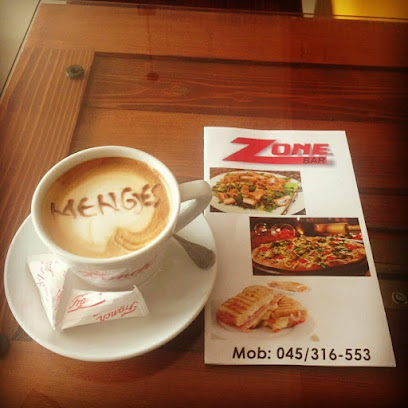
DRY BAR
Discover the ultimate relaxation at Dry Bar, Gjakova's premier lounge offering a blend of local charm and cozy ambiance, perfect for unwinding after exploring.

Terasse Lounge Bar
Experience the lively atmosphere of Terasse Lounge Bar in Gjakova, where local culture meets modern comfort in a stunning setting.
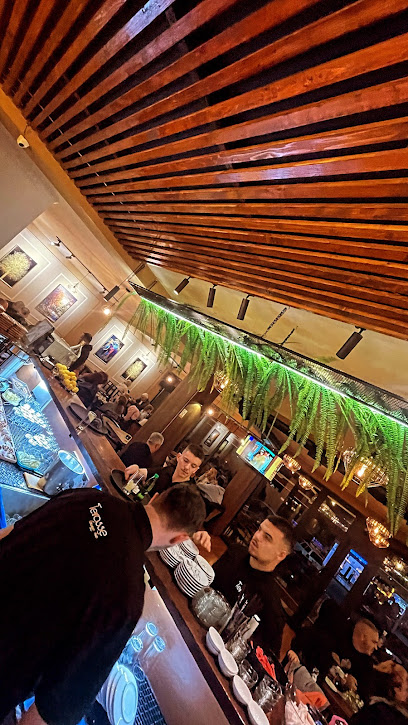
Etnogallerybar
Discover the vibrant atmosphere of Etnogallerybar in Gjakova, where local culture, art, and delightful drinks come together for an unforgettable experience.

White Horse Bar Coffe
Discover the best of local coffee culture at White Horse Bar Coffee in Gjakova, where every sip tells a story.

Local Phrases
-
- HelloTungjatjeta
[toon-jah-tye-ta] - GoodbyeMirupafshim
[meer-oo-pahf-sheem] - YesPo
[poh] - NoJo
[yoh] - Please/You're welcomeJu lutem
[yoo loo-tem] - Thank youFaleminderit
[fah-leh-min-deh-reet] - Excuse me/SorryMë falni
[muh fahl-nee] - How are you?Si jeni?
[see yeh-nee] - Fine. And you?Mirë. Po ju?
[mee-reh. poh yoo] - Do you speak English?Flisni anglisht?
[flees-nee ahng-leesht] - I don't understandNuk kuptoj
[nook koop-toy]
- HelloTungjatjeta
-
- I'd like to see the menu, pleaseDua të shoh menunë, ju lutem
[doo-ah tuh shoh meh-noo-neh, yoo loo-tem] - I don't eat meatUnë nuk ha mish
[oo-neh nook hah meesh] - Cheers!Gëzuar!
[geh-zoo-ar] - I would like to pay, pleaseDua të paguaj, ju lutem
[doo-ah tuh pah-gwai, yoo loo-tem]
- I'd like to see the menu, pleaseDua të shoh menunë, ju lutem
-
- Help!Ndihmë!
[nee-dh-meh] - Go away!Shko larg!
[shko lahr-g] - Call the Police!Thirr policinë!
[theer poh-lee-see-nuh] - Call a doctor!Thirr një mjek!
[theer nyuh myek] - I'm lostJam humbur
[yahm hoom-boor] - I'm illJam i sëmurë
[yahm ee suh-moo-ruh]
- Help!Ndihmë!
-
- I'd like to buy...Dua të blej...
[doo-ah tuh bleh] - I'm just lookingPo shikoj vetëm
[poh shee-koy veh-tem] - How much is it?Sa kushton?
[sah koosh-ton] - That's too expensiveKjo është shumë e shtrenjtë
[ko ee-shte shoo-meh eh shtrehn-jteh] - Can you lower the price?Mund të ulni çmimin?
[moon-doo tuh ool-nee chmee-meen]
- I'd like to buy...Dua të blej...
-
- What time is it?Sa është ora?
[sah eh-shte oh-rah] - It's one o'clockËshtë një ora
[eh-shte nyuh oh-rah] - Half past (10)Njëmbëdhjetë
[nyuhm-buh-dh-yeh-teh] - MorningMëngjes
[muhn-gyes] - AfternoonPasdite
[pahs-dee-teh] - EveningMbrëmje
[mbruhm-yeh] - YesterdayDje
[djeh] - TodaySot
[soht] - TomorrowNesër
[neh-sehr] - 1Një
[nyuh] - 2Dy
[duh] - 3Tre
[treh] - 4Katër
[ka-ter] - 5Pesë
[peh-seh] - 6Gjashtë
[gyahsht] - 7Shtatë
[sh-tah-tuh] - 8Tetë
[teh-tuh] - 9Nëntë
[nuhn-tuh] - 10Dhjetë
[dh-yeh-teh]
- What time is it?Sa është ora?
-
- Where's a/the...?Ku është një/të...
[koo eh-shte nyuh/teh] - What's the address?Cila është adresa?
[chee-lah eh-shte ah-dreh-sah] - Can you show me (on the map)?Mund të ma tregosh (në hartë)?
[moon-doo tuh mah treh-gohsh (nuh hahr-teh)] - When's the next (bus)?Kur është autobusi tjetër?
[koor eh-shte ow-toh-boo-see tye-ter] - A ticket (to ....)Një biletë (për ....)
[nyuh bee-leh-teh (puhr)]
- Where's a/the...?Ku është një/të...
History of Gjakova
-
Gjakova, historically known as Đakovica, has roots dating back to the early medieval period. The city gained prominence during the Ottoman Empire, particularly in the 16th century. It became an important trading hub due to its strategic location on the caravan routes connecting the Adriatic Sea with the interior of the Balkans. The Ottomans established numerous architectural landmarks, such as mosques, bridges, and inns, which still stand as a testament to this era.
-
One of the most significant historical features of Gjakova is the Grand Bazaar, also known as Çarshia e Madhe. Established during the Ottoman period, it is one of the oldest and largest bazaars in the Balkans. The bazaar was a bustling center of commerce and craftsmanship, hosting a variety of trades such as metalworking, tailoring, and shoemaking. Despite suffering damage during various conflicts, it remains a vibrant cultural and economic center.
-
Gjakova is home to a rich tapestry of religious and cultural sites. The Hadum Mosque, built in the 16th century by the Ottoman architect Mimar Sinan, is a pivotal landmark. The city also houses the Church of St. George, reflecting its diverse religious history. Gjakova's cultural life is further enriched by traditional music and folklore, with instruments like the çifteli and lahuta playing crucial roles in local celebrations and rituals.
-
During the late 19th and early 20th centuries, Gjakova played a significant role in the Albanian National Awakening, a movement aimed at establishing an independent Albanian state. The city was a center for intellectual and political activity, with many local leaders contributing to the cause. The League of Prizren, an important political organization advocating for Albanian autonomy, had strong support from the people of Gjakova.
-
Gjakova was heavily affected during the Kosovo War in the late 1990s. The city experienced significant destruction and loss, with numerous buildings, including historical sites, being damaged or destroyed. The post-war period has seen extensive reconstruction efforts, aimed at restoring Gjakova's historical and cultural landmarks. Today, the city stands as a symbol of resilience and recovery, with a renewed focus on preserving its rich heritage.
-
In contemporary times, Gjakova is a vibrant city blending its historical legacy with modern development. It has become a cultural hotspot, hosting festivals, art exhibitions, and cultural events that celebrate both its past and its present. The city's educational institutions, museums, and cultural centers play a pivotal role in promoting the arts and preserving the historical narrative of Gjakova.
Gjakova Essentials
-
Gjakova is located in the western part of Kosovo. The nearest international airport is Pristina International Airport, approximately 85 kilometers away. From Pristina, you can take a taxi or a bus to Gjakova. The journey typically takes around 1.5 to 2 hours by road. Alternatively, you can rent a car at the airport for more flexibility in your travel.
-
Gjakova is a compact city, and many of its attractions are within walking distance. Local taxis are readily available and relatively inexpensive for longer trips. Public buses operate within the city and connect to nearby towns. Car rentals are also an option if you prefer to explore the surrounding areas at your own pace.
-
The official currency in Kosovo is the Euro (EUR). Credit cards are accepted in most hotels, restaurants, and larger shops, but it is advisable to carry cash, especially in smaller establishments. ATMs are widely available in Gjakova, so withdrawing cash should not be an issue.
-
Gjakova is generally a safe city for tourists. However, it is advisable to take standard precautions, such as avoiding walking alone at night in unfamiliar areas and keeping an eye on your belongings in crowded places. There are no specific high-crime areas targeting tourists, but staying vigilant and aware of your surroundings is always a good practice.
-
In case of emergency, dial 112 for immediate assistance. The local police station and medical facilities are available in Gjakova. It is recommended to have travel insurance that covers medical emergencies. For minor health issues, there are pharmacies in the city where you can purchase over-the-counter medications.
-
Fashion: Do dress modestly, especially when visiting religious sites. Avoid wearing overly revealing clothing. Religion: Do respect local customs and traditions. Always cover your head when entering mosques and other religious sites. Public Transport: Do be respectful and give up your seat to elderly passengers. Don't eat or drink on public transport. Greetings: Do greet people with a handshake. A friendly smile is also appreciated. Eating & Drinking: Do try local delicacies and accept food offerings graciously. Don't refuse hospitality, as it is considered impolite.
-
To experience Gjakova like a local, visit the bazaar (Çarshia e Madhe) where you can buy traditional goods and enjoy local cuisine. Engage with locals, as they are often friendly and willing to share stories about the city's history and culture. Don't miss visiting the Hadum Mosque and the Clock Tower, which are significant historical landmarks. For an authentic experience, participate in local events and festivals if your visit coincides with them.
Trending Landmark in Gjakova
-
Prizren Fortress
-
Patriakana e Pejës
-
Memorial Complex Adem Jashari
-
Kosovo Museum
-
Gazimestan Monument
-
Hotel Çarshia e Jupave
-
Serbian Cathedral Mother of God of Ljeviš
-
Stone bridge
-
Ethnographic Museum - Muzeu Etnologjik
-
Zvechan Fortress
-
Hadum Mosque
-
Gjakova e Vjeter
-
Rugova Canyon viewpoint
-
Gjakovë City
-
Hani i Haraçisë
Nearby Cities to Gjakova
-
Things To Do in Bajram Curri
-
Things To Do in Prizren
-
Things To Do in Peja
-
Things To Do in Shtime
-
Things To Do in Ferizaj
-
Things To Do in Vushtrri
-
Things To Do in Mitrovica
-
Things To Do in Podujevo
-
Things To Do in Gjilan
-
Things To Do in Lezhë
-
Things To Do in Podgorica
-
Things To Do in Kamenica
-
Things To Do in Krujë
-
Things To Do in Ulcinj
-
Things To Do in Bar










